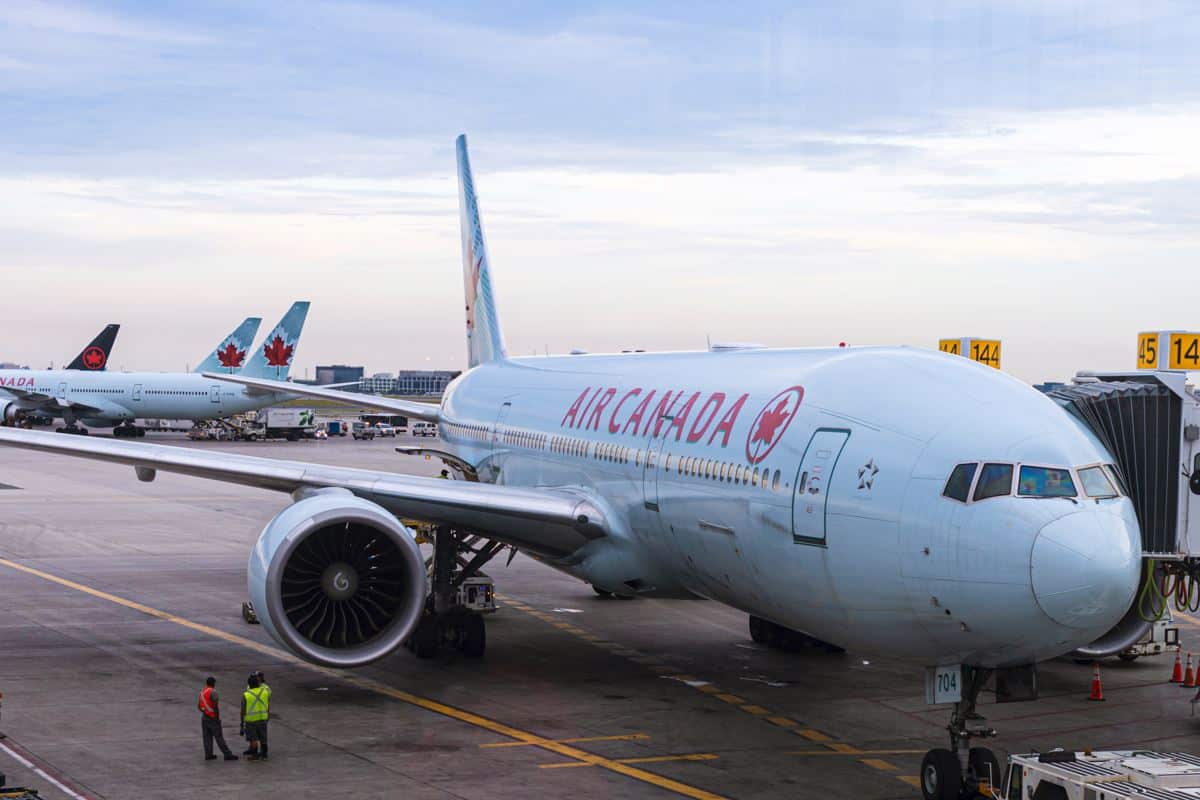Canadian airlines have teamed up to request that Canada’s federal government scraps the testing on arrival requirement for vaccinated tourists, in a move that looks set to have repercussions across the nation’s hard-hit tourism industry.
Currently, Canada applies one of the strictest border regimes in North America, with non-vaccinated visitors generally not allowed to enter, unless exempt, and those who qualify as immunized requiring pre-arrival testing and pre-departure online registration.
Air Canada, WestJet and Toronto’s Pearson Leading The Movement
Two of Canada’s largest airlines, Air Canada and WestJet, as well as the country’s busiest airport, Toronto’s Pearson, have joined forces in calling for the testing on arrival policy to be abolished.
In a letter addressed to both Ottawa and the Ontario state government, they mention that, as the government increased testing at airports and slapped further restrictions on international arrivals, they have seen frontline workers “struggle to get PCR tests and lab processing capacity decrease significantly“.
According to these entities, the restriction, which came in the midst of a worldwide Covid surge led by the highly transmissible Omicron variant, presents a “growing discrepancy between resources allocated to asymptomatic travelers and those who need it most”.
Recently, several provinces across Canada have had to restrict testing to individuals at a particularly higher risk of developing a serious illness, or who may be in a setting where transmission can occur more easily.
In the letter, both airlines and Toronto’s Pearson infer that schools, hospitals and long-term care homes should be prioritized for testing, as opposed to inbound vaccinated travelers.
According to the Public Health Agency of Canada, which tracks Covid trends across the country and at the borders, roughly 1.08% of fully vaccinated arrivals tested positive between November 28 and December 25 of last year, which brings into question the need for further testing once they touch down.
Could Industry Pressure Cause Entry Rules To Change Once More?
AirCanada, WestJet and Person Airport also suggest Canada should follow the example set by the United Kingdom, which has recently ended all testing requirements for vaccinated tourists.
The trio expects the government to revert their decision to random testing only, and to require oversea travelers to isolate only if they have symptoms or test positive.
Their demands are supported by the President of the Tourism Industry Association of Canada, Beth Potter, who says “many of those tests are being sent to other provinces for processing”.
This means that, while processing would normally take three days, vaccinated travelers could be quarantined for much longer. As Potter points out, “travelers are looking at that and saying, ‘I don’t want to spend seven of my day 10-day vacation in a hotel room waiting for test results.”
The Canadian Travel and Tourism Roundtable also urged the federal government Friday to redeploy its testing capacity and return to random testing for international passengers.
Responding to the industry’s pressing demands, Canada’s Chief public health officer Dr. Theresa Tam has conceded that the mass-arrival testing program is “questionable at this point”, when the “whole world has Omicron” and “it is a capacity drain on the systems as a whole”.
Like Canada, over the last few weeks a number of countries especially in Europe have once again tightened entry rules in response to Omicron, even for vaccinated American and Canadian visitors.
What Are The Current Rules For Entering Or Returning To Canada From Abroad?
Non-Canadian citizens are not presently allowed to travel to Canada for non-essential purposes, unless they qualify for an exemption to that rule, which includes those being fully vaccinated.
Those who have received a full vaccination course with one of the vaccines approved for use in Canada, and at least 14 days prior to the border crossing, must be prepared to show proof of immunization and take a pre-arrival molecular test no earlier than 72 hours before arrival. Rapid antigen tests are currently not accepted.
They are also required to submit their personal information, including vaccination status, on the ArriveCAN app. Those who are not vaccinated and are eligible for entry under another exception must instead include their quarantine plans in the form.
Lastly, all arrivals, vaccinated or unvaccinated must take yet another test on arrival. They are strongly advised to pre-register for an on-arrival test prior to boarding the flight, with those coming directly from the U.S., and who have only been in the U.S. or Canada in the previous two weeks usually exempt from on-arrival testing.

